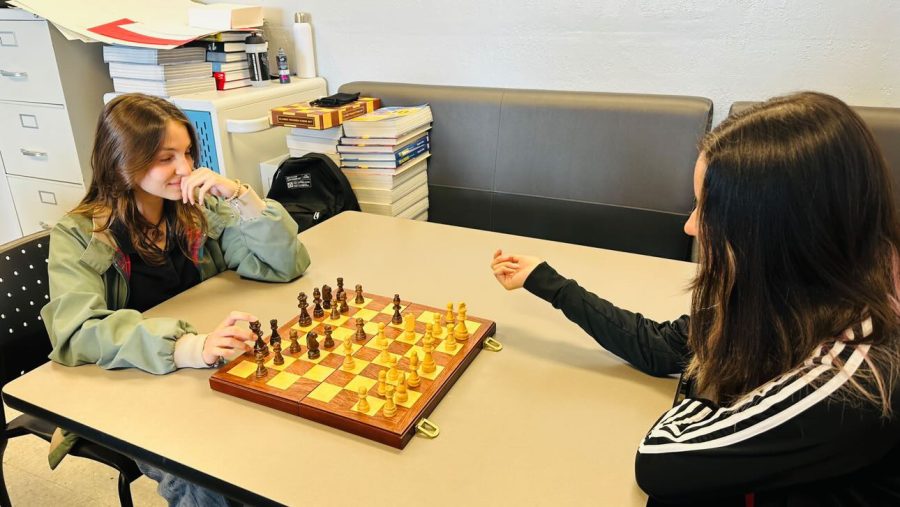The Strategic Comeback: Why the Revival of Chess Among Teens is a Positive Trend
Chess has recently gained a surge of popularity among teens around the world.
Chess, the classic board game that has been around for centuries, is experiencing a newfound resurgence in popularity among teenagers. The ancient game of strategy has captured the hearts and minds of a new generation, and its popularity shows no signs of slowing down. This recent increase in the popularity of chess could bring benefits to a new generation; learning chess will teach them valuable life lessons such as patience, strategy and critical thinking.
Why this sudden resurgence in interest in chess? Perhaps it is due to the rise of online platforms like TikTok and Chess.com, where grandmasters and newcomers alike can share their love of the game with a global audience. Or maybe it is because of the Netflix hit series “The Queen’s Gambit,” which follows the rise of a young orphan girl who becomes a chess prodigy in the 1960s. Whatever the reason, it is clear that a new generation is falling in love with the intellectual challenge and strategic complexity of chess.
In a generation where instant gratification and short attention spans are the norm, chess offers a refreshing change of pace. Players plan their moves ahead of time and anticipate their opponent’s responses, making it a game of strategy and foresight. This trend of playing chess has taught many the value of patience, both in the context of a game and in the real world.
“Chess is not just a game, it’s a way of life. It has taught me to be patient, to think ahead and to always be ready for the unexpected. It’s amazing to see more and more young people getting interested in this wonderful sport,” sophomore Josemiguel Guerrero said.
Chess can be played at any level of skill, as there is always room for improvement. This means that teenagers can continue to challenge themselves and set new goals, which can be incredibly rewarding. Chess also teaches teenagers the value of hard work and perseverance, as success in the game often requires hours of practice and dedication.
Moreover, chess is a great equalizer. It does not matter who you are or where you come from; if you have the skills and have put in the work to develop them, you can win. This makes it an ideal sport for kids who may not excel at traditional sports or who feel left out of other activities. Chess levels the playing field and provides a platform for kids to compete and excel.
But perhaps the most significant benefit of playing chess is the impact it has on mental health. Studies have shown that playing chess can help to improve concentration, memory and critical thinking skills. It has also been linked to reduced anxiety and stress levels, making it a great way for teenagers to unwind and decompress after a long day at school.
Long-time players of chess argue against this ‘trend’ of modern chess, saying that the implementation of an online, fast-paced system of chess to appeal to larger groups of people has corrupted the traditional slow and intense battle of classical chess. While it is true that modern forms of chess have changed some elements of the game, the deep, intellectual struggle that represents chess’ main appeal has not disappeared. With new players bringing their own unique styles into the game, this modern era has brought new levels of competition and prosperity to chess worldwide.
“I think that this new trend of playing chess is a little questionable and out of the ordinary. Most people are just playing because they see videos on TikTok of others playing it and want to join the majority. With that being said, I do still believe that it will help some of these people and make them more analytical and intelligent,” sophomore Taronish Unwalla said.
The newfound resurgence and popularity of chess among teens is a positive trend that should be celebrated. Let us embrace this new generation of chess players and continue to promote the many benefits that this timeless game has to offer.
Your donation will support the student journalists of Coral Gables Senior High School. Your contribution will help us cover our annual website hosting costs.

Anthony Fajardo, a senior in the International Baccalaureate magnet program at Coral Gables Senior High School, is gearing up for his last year as a Sports...







